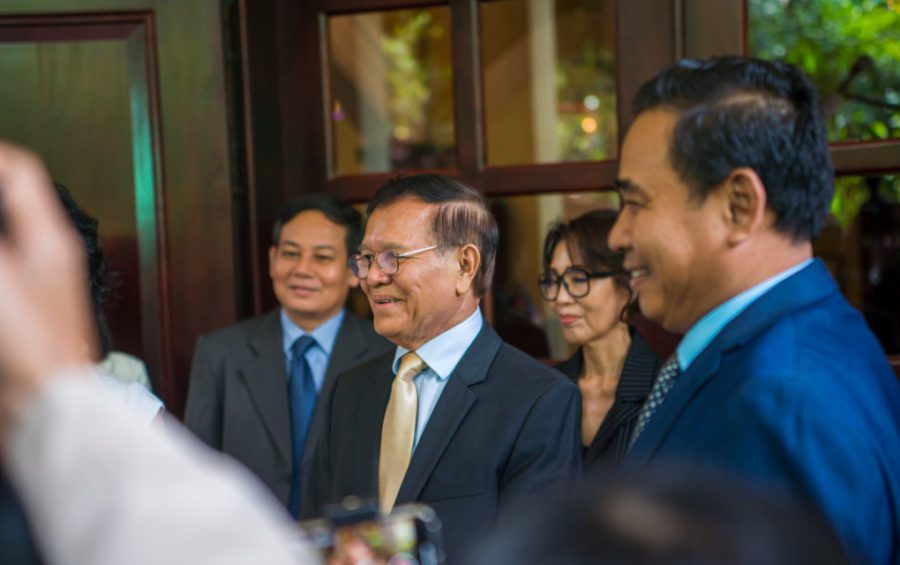UPDATED 6:10 p.m. — A Phnom Penh judge has closed the investigation into opposition leader Kem Sokha’s treason case more than two years after his arrest, with the court still left to decide whether and when to send the case to trial.
Sokha, accused of conspiring with the U.S. to overthrow the government, also saw the conditions against his de facto house arrest relaxed this week, and has since held a series of meetings with foreign diplomats.
“In the criminal case dated September 3, 2017, the accused Kem Sokha was placed under court supervision and charged with ‘conspiracy with a foreign power’ as committed in Cambodia and other locations from 1993,” a letter from Investigating Judge Ky Rithy to defense lawyer Pheng Heng said. “We’ve now decided to close to the investigation.”
Phnom Penh Municipal Court spokesman Y Rin said the case would now return to court prosecutors, who can request a trial.
The changes in Sokha’s case has come as the E.U. again demanded to see “real and credible” improvement in Cambodia’s political and human rights situation if it wants to keep duty-free trade with its largest export market.
The E.U. began its review of the “Everything But Arms” trade deal in February, and on Tuesday submitted its preliminary report to the Cambodian government. The report has not been publicly released. A final decision is due in February.
Sokha was arrested in September 2017 amid a wide-ranging crackdown on the political opposition, civil society and media. His party, the CNRP, was dissolved two months later, and the ruling CPP won all 125 seats in the National Assembly in a national election the following year.
Political analyst Meas Nee said it would be difficult for the government to have the charge against Sokha dropped, because the Supreme Court’s dissolution of the CNRP was based on the conspiracy allegations against him.
“If there is a pardon or the charge is dropped, [the issue] will return to the dissolution of the CNRP,” Nee said. “If the charge against Kem Sokha is dropped, it means the dissolution of the CNRP is illegal.”
Updated at 6:10 p.m. with comment from Meas Nee.
(Translated and edited from the original article on VOD Khmer)












